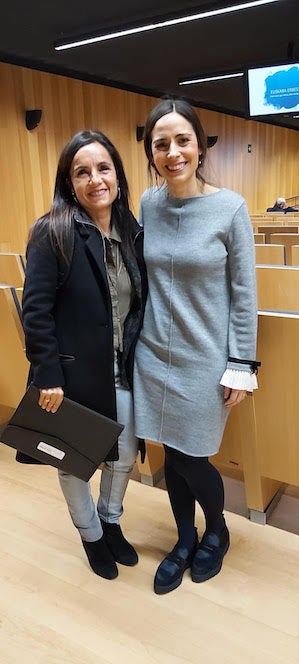
Ziortza Gandarias Beldarrain, an assistant professor in the Department of World Languages, attended the 16th International Conference of Exilioa eta Humanitateak (Exile and Humanities) in Donostia-San Sebastián in the Basque Country in November.
The conference was organized and sponsored by many institutions in the Basque Country, the United States and Spain: Hamaika Bide Elkartea; Center for Basque Studies (University of Nevada Reno); University of the Basque Country; University of Deusto; The Basque government; The Gipuzkoa Provincial Council; San Sebastián City Hall, Gogora; and the Spanish government.
The conference’s main focus was to analyze and debate the pathway made in exile by Basque culture during the 40 years of Franco Dictatorship (1939-1975). This conference brought together academics, philosophers, writers and those who had experienced exile.
Gandarias Beldarrain presented a paper titled “Jokin Zaitegi: Erbestetik Euskal Komunitate Irudikatua Eraikitzen” (Jokin Zaitegi: Building the Basque Imagined Community from the Exile). The paper examined how Zaitegi, an exiled Jesuit priest, was able to develop a network of fellow Basque intellectuals to save and rebuild the defeated Basque Country through the Basque language. In order to pursue this goal, Zaitegi created Euzko-Gogoa (Basque-Will), the first magazine written entirely in the Basque language, published in Guatemala between 1950-1960.
This magazine became a platform for building an imagined community that could be a reference for the future Basque nation. Gandarias focused on the importance of place in the case of Euzko-Gogoa Guatemala, showing how it became the archetype of freedom, a place where the Basque culture found space to grow and build an imagined community, and where exile became a fundamental pillar for the modernization and development of Basque culture and literature.